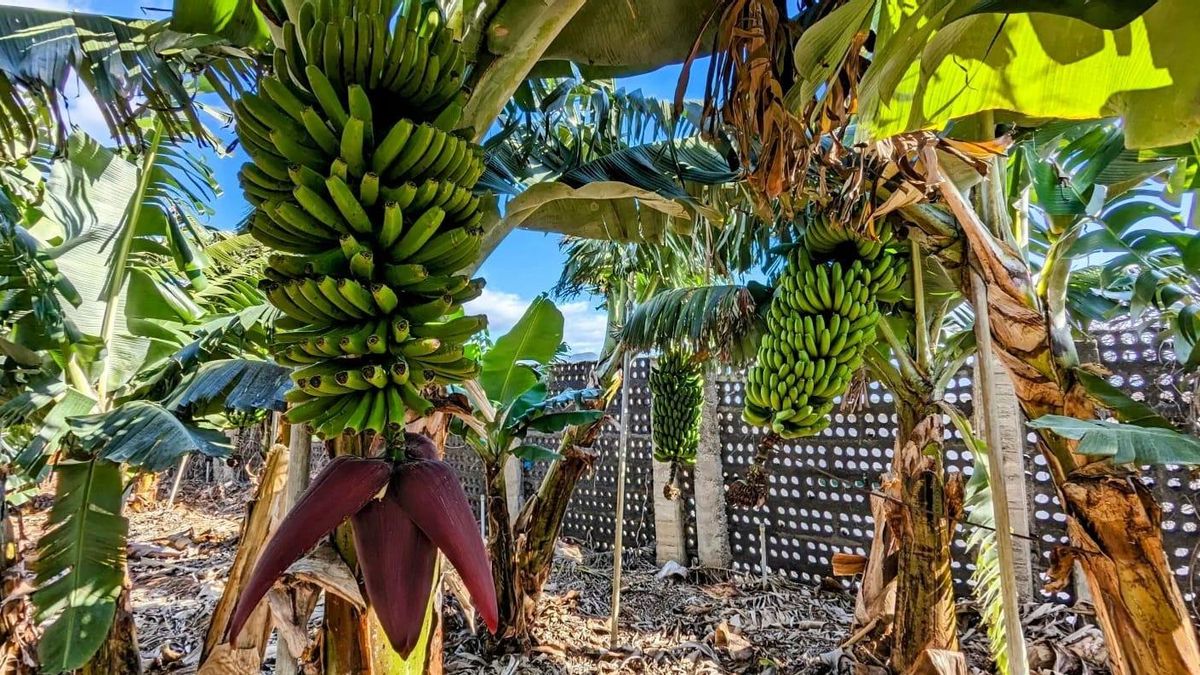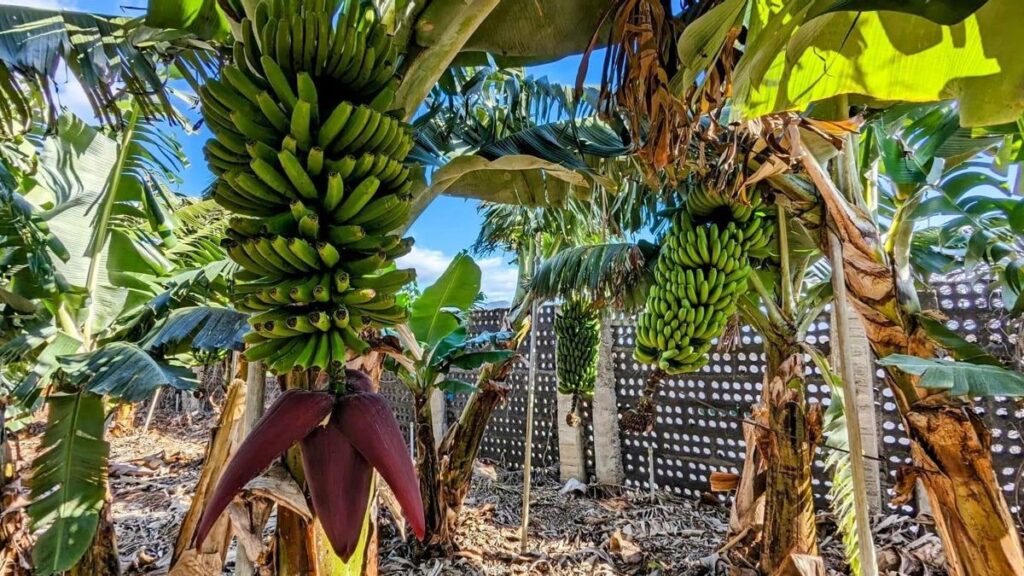The hidden cost of pesticides on La Palma
The population of beneficial insects that naturally control pests in conventional banana crops has significantly declined. This alarming trend, detailed in a study led by Spain’s National Museum of Natural Sciences (MNCN-CSIC) with participation from the University of Salamanca, is a direct result of pesticides used on plantations. These chemicals induce more mutations and, combined with increased mobility in “disturbed environments,” are creating an ecological imbalance.
Organic vs. conventional: a clear difference
The research team confirmed that populations of insectivorous earwigs (Euborellia annulipes) have dwindled. Their sample, taken on the island of La Palma, compared conventional crops with organic ones, where a much greater presence of these beneficial insects was evident. The study states that “the loss of insects is one of the most serious problems facing ecosystems,” and it is human activity that is causing this species decline. It points to agriculture, especially when practiced intensively, as having a “strong impact” on the environment.
The genetic consequence of biodiversity loss
As an effect of biodiversity loss from excessive pesticide use, species inhabiting agricultural ecosystems have shown a reduction in both number and genetic variety. This loss ironically contributes to an increase in pests, creating a vicious cycle. In the face of this, researchers confirmed that organic agriculture presents itself as “a more nature-friendly alternative” because it uses no chemical fertilizers or pesticides. The study shows organic crops harbor a greater number of earwigs, particularly females.
A surprising genetic discovery
Pilar Jurado, a researcher at the National Museum of Natural Sciences, noted that female earwigs are more sedentary because they care for their young, making them more vulnerable to pesticides in traditional crops compared to males, which have a greater capacity for movement. Researcher Mario García highlighted a counterintuitive finding: “The data that surprised us was the genetic data: although there were more earwigs in the organic crops, the genetic diversity was greater in the conventional ones.” This demonstrates that it is not enough to just evaluate the quantity of species; it is fundamental to consider their genetic diversity and structure.
Why these tiny predators matter
Insectivorous earwigs are important natural controllers of pests in agricultural crops. Their presence is vital for guaranteeing a successful harvest, making their decline a serious concern for farmers and the ecosystem alike. This research underscores the complex relationship between farming practices and the tiny, beneficial creatures that work silently to protect our food.


